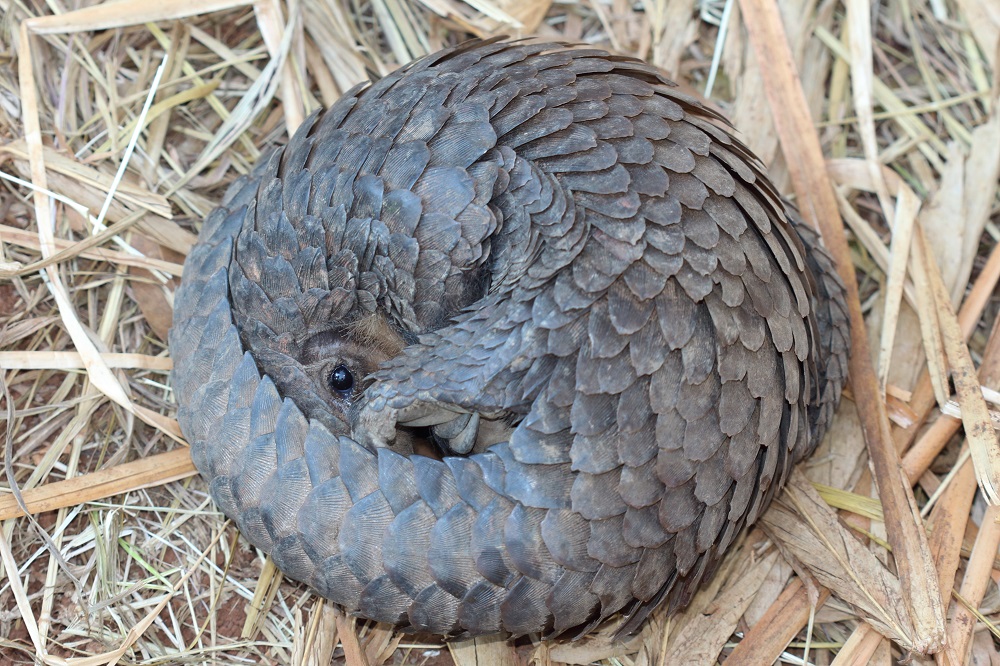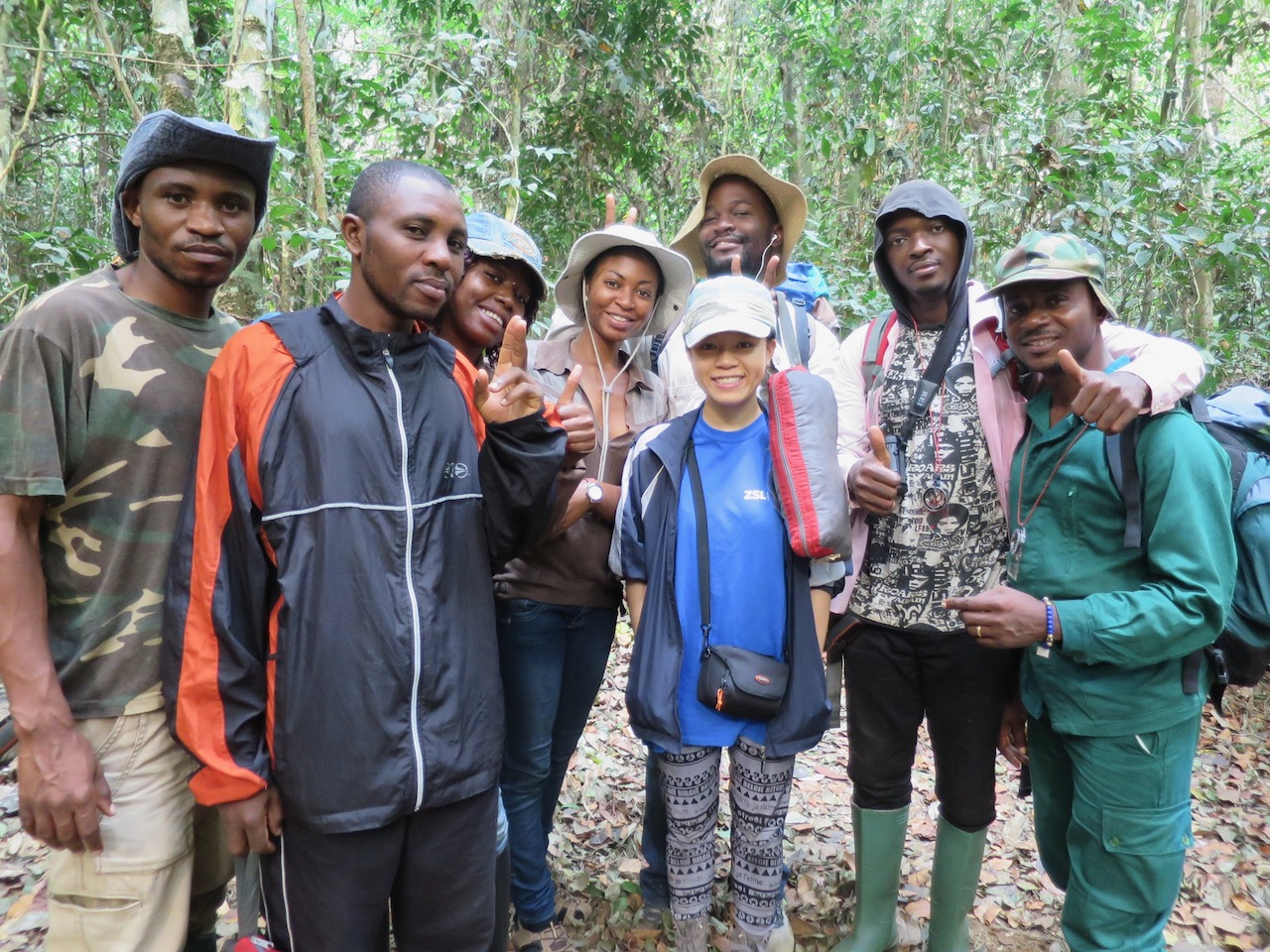
University of Kent alumna Linh Bao Nguyen has published research from her MSc which was completed in the Durrell Institute of Conservation and Ecology (DICE) under the supervision of Dr Tatyana Humle who also co-authored the paper. Her study sought to understand consumer demand for bushmeat in urban centres of Cameroon focusing on the endangered pangolin.
The research, published in Conservation Science and Practice, reveals that pangolin is subject to intensive consumption by urban residents and was among the most desired types of bushmeat in the study regions.
Combined with the largest threat, which is the intercontinental trade between Central Africa and Asia, it is believed that an increasing local demand for bushmeat and pangolin scales would have severe impacts on wild pangolin populations.
The fieldwork was conducted in Cameroon back in 2017, under the MENTOR-POP (Progress on Pangolins) programme, by Linh Bao Nguyen and Esua Fossung, who received their MSc in Conservation and International Wildlife Trade at DICE. The two alumni were both recipients of the UK Chevening Scholarships and fellows of the MENTOR-POP programme.

Based in Yaoundé, Cameroon, the MENTOR-POP Program developed a transdisciplinary team of nine early-career Central African and Asian conservation practitioners to champion the conservation of pangolins in Central Africa. The Program was funded by the U.S. Fish and Wildlife Service and hosted by the Zoological Society of London from 2016 to 2017.
Pangolins are hunted across their ranges in Africa and Asia. With declining Asian pangolin populations, a shift in trade from Asian to African pangolin species has been observed.
Cameroon is one of the most common export countries in Central Africa for the international trade of pangolins. During the past few years, numerous seizures of pangolin scales and meat trafficked within the country have been recorded. Cameroon harbours three of the four African pangolin species:
- the giant pangolin (Smutsia gigantea)
- the white-bellied pangolin (Phataginus tricuspid)
- the black-bellied pangolin (Phataginus tetradactyla).
Although all species of pangolin in Cameroon are fully protected by laws, they are consistently found in local bushmeat markets and restaurants and international trafficking, suggesting ineffective law enforcement.
Rapid population growth, urbanization, and growing demand for food are exacerbating the bushmeat crisis in Central Africa, including Cameroon. Behavioural change interventions may help reduce demand for bushmeat, especially pangolins, in urban centres. However, few studies have focused on consumer behaviour and drivers of demand in Cameroon to effectively guide such interventions.
This research thus provides an initial understanding of sociocultural perspectives and preferences influencing bushmeat consumption in urban centres of Cameroon with a focus on pangolin species. Our findings could inform further data collection and help guide consumer-targeted interventions aimed at reducing demand for bushmeat and pangolins in urban centres of Cameroon.
Learn more about the Durrell Institute of Conservation and Ecology




